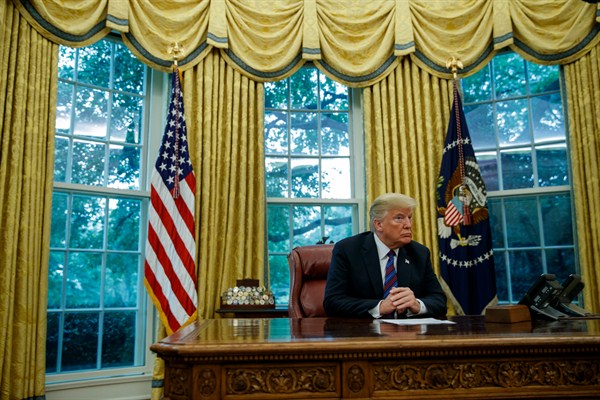To ancient Greeks, the dog days of summer came when the star Sirius, known as the dog star, was positioned prominently above the horizon just before sunrise. The star was linked with disaster, even war, at the height of a hot summer. Its meaning evolved over the centuries as it was translated from ancient Greek to Latin and, eventually, English.
In Washington this summer, U.S. trade policy has suffered through its own version of the dog days. There was the lethargy associated with trying to resolve the trade war with China. There was the sudden storm of President Donald Trump seeming to revive his threat to impose tariffs on imported cars from Europe. The only bright spot was a tentative, and partial, trade agreement with Mexico last week. But that deal raises more questions than it answers, especially with Canada in limbo on whether it will be part of the new agreement. Even with the Canadians in, the “win” will have come at the expense of bruised relations with close allies and will be marred by the fact that key elements reflect Trump’s protectionist tendencies.
These past few weeks of summer torpor produced just the latest round of the administration’s risky and head-scratching trade policy. Despite growing calls for relief from farmers and an ever-wider swath of affected industries, the administration again escalated its trade war with China, imposing tariffs on another $16 billion in Chinese imports and holding public hearings to consider additional levies on $200 billion more. In the midst of those hearings, Chinese and American negotiators met for the first time in two months to discuss how to resolve the situation. But only mid-level officials participated in the talks and, as expected, nothing came of them.

